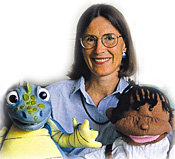 A decade ago parenting programs were not in fashion. It was commonplace to talk about the effects of family breakdown or the problems of single mothers, but relatively few people were paying much serious attention to what parents did or to how parenting behaviors could be changed with children's health and development in mind. Not so today: many jurisdictions are awash with programs, most of them of doubtful value.
A decade ago parenting programs were not in fashion. It was commonplace to talk about the effects of family breakdown or the problems of single mothers, but relatively few people were paying much serious attention to what parents did or to how parenting behaviors could be changed with children's health and development in mind. Not so today: many jurisdictions are awash with programs, most of them of doubtful value.
After spending two years practicing among the Haida and Tlingit Indians of Alaska, Carolyn Webster-Stratton came to the conclusion that showing parents how to play with their children was more effective than telling them how to do it. When sl1e arrived at the University of Washington in 1976 to teach in the nurse practitioner program, she began the process of videotaping families to show them what worked with their children and what didn't. Today, Webster-Stratton is a professor of nursing at the University of Washington where, in 1980, she con1pleted her doctoral dissertation in educational psychology on the effectiveness of videotape modeling parental education as a therapeutic tool.
Read the article (PDF)
Year: 2008
Bibliography: Yale Nurse. 2008. Yale University.
Authors: Knight, , , ,